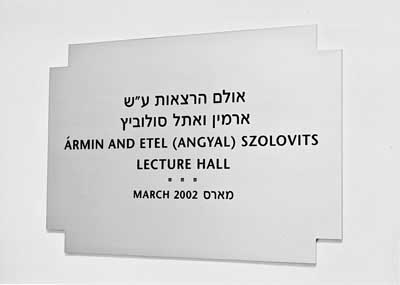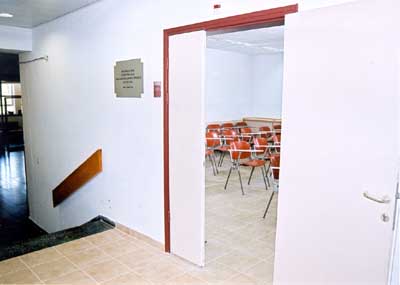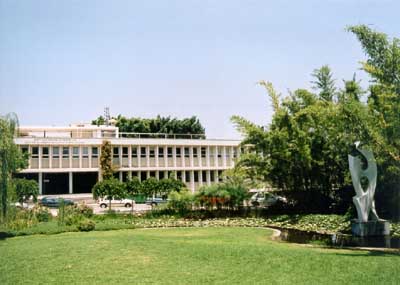 Bequest to Weizmann Institute
Bequest to Weizmann Institute Bequest to Weizmann Institute
Bequest to Weizmann InstituteÁrmin and Etel Szolovits left a sizable bequest to the Weizmann Institute of Science in Israel. My father had a particular interest in physics, astronomy, and engineering, and my mother had studied to become a doctor before the Holocaust. When they created their trust, they expressed their desire to support advanced scientific research in Israel, both as an affirmation of their beliefs in the importance of scientific progress and as an indication of their hope for the future of Israel.
Their contribution is to endow the Ármin and Etel (Angyal) Szolovits
The scholarships are for one doctoral student and one masters student at a time, and the Discovery Fund is part of the Institute's efforts to support start-up research by new faculty members.
In recognition of their contribution, the Weizmann Institute has
designated a class room in the K.B. and Edna Weissman Building of
Physical Sciences as the "Ármin and Etel (Angyal) Szolovits
lecture hall." Its designation is marked by a plaque outside
the door, and another plaque recognizing my parents' parents,
siblings, and those of my generation, including a brother I never
met, who perished in the Holocaust. (A key is below the plaque.)






Lajos and Lenke (Löwy) Szolovits were Ármin's parents. Lajos perished in WW I as a soldier in the Austro-Hungarian army, fighting in the Piave River valley in northern Italy. Sámuel and Frances (Weisz) Angyal were Etel's parents. The order of children in my father's family was Arabella (known as Bella), József, Ármin, Dezső, Sándor, Olga and Erzsébet. My mother knew only three of her nine older brothers, Béla, Imre and Lajos, the others having died of childhood accidents and diseases before she was born. Lajos Szolovits was my father's first son, born in 1939 at a terrible time in Hungary. Pál and Teri Angyal were Lajos Angyal's little children, and Erika and Marica were the young daughters of Olga and Erzsébet, respectively. Of all these people, only Bella remains today (2002), Béla and Imre survived the Holocaust and died in relatively old age, and the rest were deported and murdered at Auschwitz.
Growing up in a post-WW II "nuclear" family, the absence of these relatives and the sadness my parents were never able to completely banish from their existence was a strong, oppressive force. I can only hope that our children and their generation will not need to revisit this kind of loss.
--Peter Szolovits, July 2002